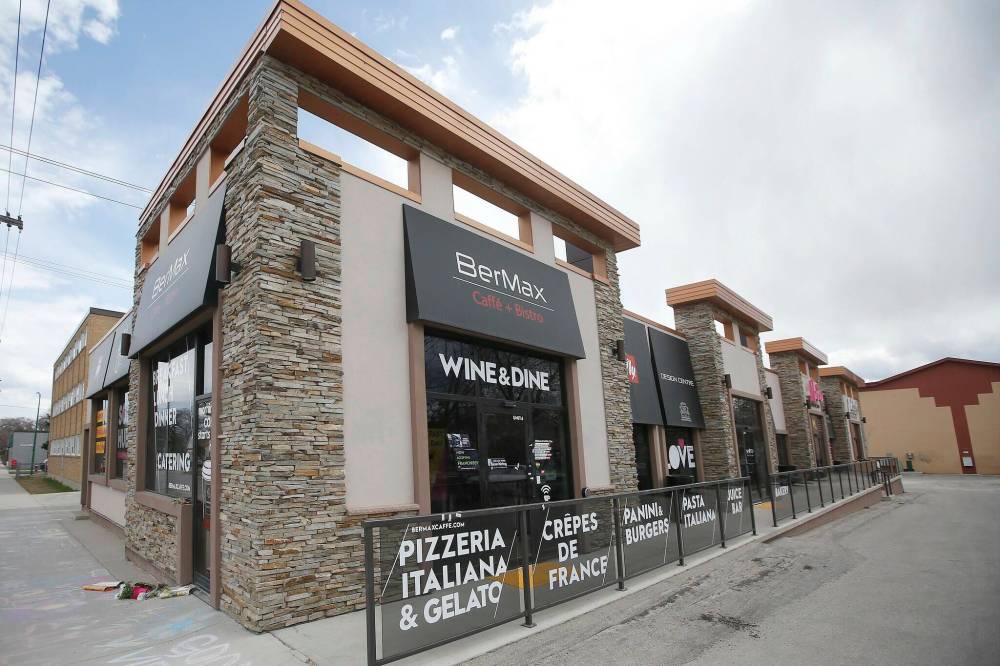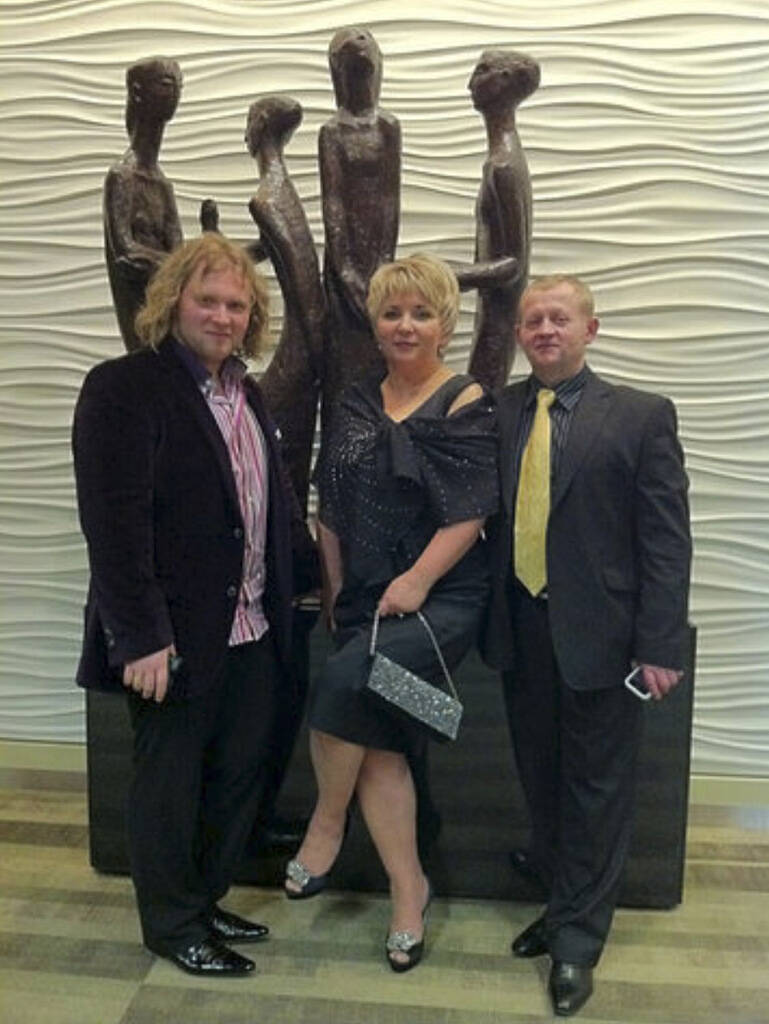Extradition unlikely for family accused of faking antisemitic attack at their restaurant in 2019
Accused trio moved to U.S., was supposed to return for trial
Advertisement
Read this article for free:
or
Already have an account? Log in here »
To continue reading, please subscribe:
Monthly Digital Subscription
$0 for the first 4 weeks*
- Enjoy unlimited reading on winnipegfreepress.com
- Read the E-Edition, our digital replica newspaper
- Access News Break, our award-winning app
- Play interactive puzzles
*No charge for 4 weeks then price increases to the regular rate of $19.00 plus GST every four weeks. Offer available to new and qualified returning subscribers only. Cancel any time.
Monthly Digital Subscription
$4.75/week*
- Enjoy unlimited reading on winnipegfreepress.com
- Read the E-Edition, our digital replica newspaper
- Access News Break, our award-winning app
- Play interactive puzzles
*Billed as $19 plus GST every four weeks. Cancel any time.
To continue reading, please subscribe:
Add Free Press access to your Brandon Sun subscription for only an additional
$1 for the first 4 weeks*
*Your next subscription payment will increase by $1.00 and you will be charged $16.99 plus GST for four weeks. After four weeks, your payment will increase to $23.99 plus GST every four weeks.
Read unlimited articles for free today:
or
Already have an account? Log in here »
Hey there, time traveller!
This article was published 06/08/2024 (494 days ago), so information in it may no longer be current.
Five years after they were accused of staging antisemitic hate crimes at their River Heights restaurant, there are no signs three members of a Winnipeg family will ever return to the city to face prosecution.
Alexander and Oxana Berent and their son, Maxim Berent, were charged with public mischief after alleging their Corydon Avenue restaurant, BerMax Caffé and Bistro, had been the target of four antisemitic attacks in 2019.
The three accused were given court approval to relocate to Los Angeles in January 2020, with the expectation they would return to Winnipeg for trial the following October.

Lawyer Phil Cramer, who previously represented Alexander Berent, replied “no comment” when asked recently if Berent had any plans to return to Winnipeg. Lawyer Brett Gladstone, who represented Maxim Berent, said he had not had any contact with Berent since relocating to Los Angeles. Michael Lazar, Oxana Berent’s lawyer, could not be reached for comment by deadline Tuesday.
Crown attorney Mike Himmelman, the prosecutor assigned to the case, said arrest warrants for the three accused remain on the books.
The warrants “will remain there, they don’t go away,” Himmelman said Tuesday. “If they do return to the jurisdiction, the warrants will be executed.”
Police arrested the trio in April 2019, days after they alleged Oxana had been assaulted during a break-in at the restaurant. The family claimed robbers trashed the restaurant, spray-painted the word “Jew” on the floor and sketched a swastika on a wall.
Security video from multiple locations cast doubt on the family’s claims and suggested the events were staged, police alleged in search warrant documents filed with the court.
Other court records reviewed by the Free Press showed the café was facing serious financial troubles in the leadup to the alleged crime, including six-figure debts, lawsuits, a real estate lien and an inability to sell the restaurant or consistently make rent.
In September 2020, as the trial date approached and the COVID-19 pandemic was in full swing, Crown and defence lawyers agreed to cancel the trial after the three accused argued they didn’t have the resources to comply with a 14-day quarantine requirement if they returned to Winnipeg.
The Crown issued warrants for the three on the understanding they would not be held in custody when they returned to Winnipeg.
But they never did return and the case remains at a standstill.
”There are very limited options available in a situation like this…”–Brandon Trask, U of M law professor

In October 2020, a provincial court judge rejected a motion by the Berents seeking to be tried remotely from Los Angeles. Prosecutors argued the complexity of the evidence, the number of witnesses and other factors demanded that they be tried in person.
While extradition is an option available to justice authorities, it is typically reserved for the most serious criminal offences, such as murder, said University of Manitoba assistant law professor Brandon Trask.
Extradition is “historically unlikely for offences of this magnitude,” Trask said.
“In practice, there are very limited options available in a situation like this where accused individuals are not returning to the jurisdiction for trial,” he said. “The low end of the spectrum here poses some challenges for the Crown.”
At the same time, if the three accused do one day return to Canada, prosecuting them could prove difficult if it can be shown justice authorities knew where they were and made no effort to bring them back, Trask said. The more time that passes, the more that memories fade, the greater likelihood that witnesses will not be located or die.
“Essentially, we want to make sure that cases coming before the court have some viability,” Trask said.
dean.pritchard@freepress.mb.ca

Dean Pritchard is courts reporter for the Free Press. He has covered the justice system since 1999, working for the Brandon Sun and Winnipeg Sun before joining the Free Press in 2019. Read more about Dean.
Every piece of reporting Dean produces is reviewed by an editing team before it is posted online or published in print — part of the Free Press‘s tradition, since 1872, of producing reliable independent journalism. Read more about Free Press’s history and mandate, and learn how our newsroom operates.
Our newsroom depends on a growing audience of readers to power our journalism. If you are not a paid reader, please consider becoming a subscriber.
Our newsroom depends on its audience of readers to power our journalism. Thank you for your support.





